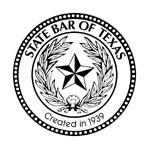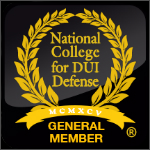WHAT ARE THE MOST COMMON REASONS FOR DWI STOPS IN TARRANT COUNTY?
Most DUI/DWI’s are a result of being pulled over for some traffic violation. Usually, an officer will initially pull a driver over for a moving violation. Then, while talking to the driver, the officer smells alcohol on the driver’s breath or sees open alcohol containers in the car. Consequently, while being pulled over for some other violation, the driver ends up being investigated or arrested for DWI.
What are the Most Common Traffic Violations that Result in DWI Arrests?
The following is a list of the most common traffic violations and their technical definitions based on the Texas Transportation Code, if you are interested in reading further. The portion of the legal statutes that apply to vehicles, motorists, and traffic rules is called the Texas Transportation Code.
Compliance with Traffic Control Device
Unsafe Passing to the left of another vehicle
Passing in a “no passing” zone
Unsafe Passing to the right of another vehicle
Driving on Improved Shoulder
Failure to Drive within a Single Lane
Following too closely behind another vehicle
Passing a School Bus
Improper turn at Intersection
Improper use or Failure to use turn signal
Failure to signal stop/sudden stop
Improper stop/Failure to stop at intersection
Failure to Yield Right of Way at Intersection
Failure to/Improper Yield to Emergency Vehicle
Improper stopping/parking (ie. in an intersection)
Driving at an unsafe speed
Speed Limits when not otherwise posted
Reckless Driving
Leaving Vehicle Unattended
Driving too Slow
Transporting Child without Safety Seat
Failure to Wear Seat Belt
Transporting Child in Back of Pickup Truck
Improper Backing of Vehicle
Driving with Operators View Obstructed
Racing (includes rapid acceleration, or “peeling out”)
Driving through Driveway – refers to Parking Lot
Failure to Drive within Single Lane/Unsafe Lane Change
Driving Without Lights On
Absence of License Plate Light
Tail lamp not Emitting Plainly visible Red Light
Tinted Windows (too dark)
Failure to display Inspection Sticker
Displaying fictitious Inspection Sticker
Operating a Vehicle in Dangerous Mechanical Condition
Striking Unattended Vehicle
Striking Fixture or Highway Landscaping
Call me today to schedule a meeting to discuss your case.
Important:
Just because you have been accused or arrested for DWI doesn’t mean you are guilty of DWI. The state must prove you were guilty of driving while “intoxicated.” Intoxication is defined by the Texas Penal Code as “not having the normal use of mental or physical faculties by reason of the introduction of alcohol, a controlled substance, a drug, a dangerous drug, a combination of two or more of those substances, or any other substance into the body; OR having an alcohol concentration of 0.08 or more.”









